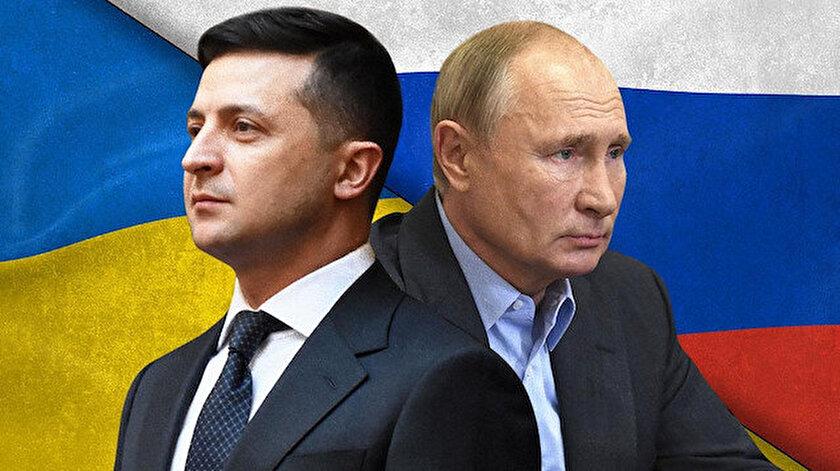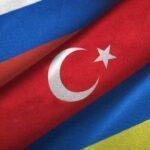BY ZEYNEP GURCANLI
The war has already begun to change international balances, not only in the region close to Ukraine but all over the world.
The Middle East, Asia, and Europe are very active these days. Alliances are changing and being renewed. While the “star” of some countries is shining, some of them are now completely introverted.
“STRATEGIC COMPASS” MOBILITY IN EUROPE
The effect of the Ukrainian war on Europe was that the old continent began to feel the need to take on its own defense capabilities. The US’s sudden withdrawal from Afghanistan without consulting its European allies, and then the “Aukus stake” that it threw at France with its alliance with Australia in Asia, caused the Europeans to realize they needed to care for themselves without the US’s help.
Germany’s announcement that it allocates 100 billion Euros to defense spending and the European Union’s launch of the Strategic Compass initiative, with which it will create its own “emergency response force,” are concrete examples of this.
The launch of a “European army” has been tried many times before, but it was never effectively implemented. This failure is the result of many factors.
First, there is Europe’s continued refraining from additional spending on defense, while NATO has a ready military force; there is the fact that France, which is economically weak but militarily ambitious, and Germany, which is economically strong but prefers to stay behind militarily, cannot meet on the same axis; there is the never-ending petty political tussle within the EU’s 27 countries; and on top of that, they do not know where to put Turkey, which cannot participate in NATO-EU military cooperation due to its ongoing conflict with Greece.
The shake-up of Europe due to the Ukraine war has begun to reflect on Turkey’s policy, however. The visit of the Prime Ministers of Germany and Greece to Turkey was followed by that of Dutch Prime Minister Rutte.
These visits are an indication of the “opening of space” for Turkey by the West. Turkey is trying to stay “neutral” in the war and is even trying to forge a peace between Ukraine and Russia. However, the Dutch Prime Minister’s diplomatic statement during his visit that he “expects Turkey to comply with the Western sanctions against Russia” also revealed that the area opened to Ankara is not as wide as was previously thought. As the war drags on, this is a sign that the pressure to “choose your side” on Ankara from both the USA and Europe will increase.
KEY COUNTRY IN ASIA: INDIA
The biggest activity in Asia is happening in India. The US-led Western front is preparing for the aftermath of the showdown with Russia over Ukraine. Next up is China.
Therefore, there is a great competition over which side will attract the “sleeping giant” of Asia, India. These days, Americans are busy looking for legal loopholes in their own laws in order not to impose sanctions on the S -400s bought by the New Delhi government from Russia, just so that India does not go to the “opposite front.”
The Washington administration also included India in a new alliance with Australia and Japan. However, this security cooperation organization, known as “QUAD,” is still far from being a concrete military alliance. As a matter of fact, India has shown that it is not yet willing to throw itself on the Western front with its more neutral policy towards Russia in the Ukraine War. The Foreign Ministers of China and then Japan visited New Delhi in the past week. China is trying to prevent India from being included in the Western front. Japan, on the other hand, is seeking a strong country where it can set up base in Asia following Russia’s sudden halting of negotiations on the disputed Kuril Islands.
RENEWED ALLIANCES IN THE MIDDLE EAST
The Middle East, on the other hand, is going through a very interesting period where old enemies become friends and friends become enemies.
There is enmity growing in the Gulf Arabs’ apparent separation from US policy in the Ukraine War. While the US is stepping up its nuclear talks with Iran, Israel and the Gulf Arabs, who see the Tehran administration as their biggest enemy, are moving away from Washington and getting closer to each other.
In this respect, the most obvious example of “enemies becoming friends” is the the Arab-Israeli normalization that started with the Abraham Agreements. Egyptian President Sisi also hosted a tripartite summit in Sharm el-Sheikh this week with Israeli Prime Minister Bennett and United Arab Emirates Crown Prince Mohammed Bin Zayed. Another example is that of Syrian leader Assad visiting the United Arab Emirates for the first time in years and being greeted with “red carpets.”
Of course, it is possible to add Turkey’s normalized relations with the UAE and Israel to this list. The missing link is Egypt; Sisi does not seem ready to reconcile with the AK Party government in Ankara, which tends to add adjectives such as “murderer/putschist” in front of his name.
Here’s where things stand: The Crown Prince of the UAE, who has been trying to put Turkey at the center of his Middle East policy lately, is ready to roll up his sleeves to get between Egypt and Syria and the AK Party government. Do not be surprised if Sisi or Assad are greeted with “turquoise carpets” in Ankara soon.










